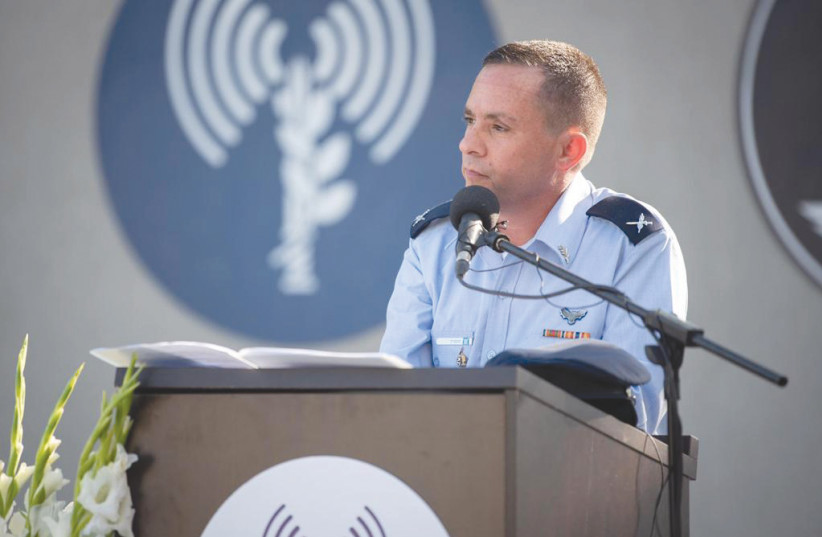The spokesperson units of the Israel Police, IDF and Shin Bet (Israel Security Agency) sent an unusual joint letter to “all of the media outlets” in the country, denouncing the coverage of the shooting on Dizengoff Street in Tel Aviv and the aftermath of Thursday night and calling on them to examine and learn lessons from the incident.
Reporters on Thursday night followed IDF soldiers during the hunt for the escaped terrorist, at one point even filming almost directly over their shoulders as they searched a building. While the police said they had requested that the reporters stay away, they admitted that they did not close off the area and did not officially demand that the material be censored.
“The recent security situation has been sensitive and challenging for all of us – the broad public, the security and emergency bodies and the Israeli media,” the letter began. “The security incidents sharpen the special role we each have: the professional role to provide security, to provide coverage of the reality on the ground and bring it to the public’s attention, and no less important: to strengthen the feeling of security and prevent the distribution of fake news that can enhance the public’s anxiety and panic.
“The difficult terror attack that occurred on Dizengoff Street and the fact that the area was not ‘closed off’ immediately, caused, unfortunately, media conduct that reminded viewers of television programs that have nothing to do with an emergency situation.
“Some of the TV channels turned the hunt for the terrorist into actual reality TV, without any censorship or self-criticism,” the letter added in bold letters.

The letter went on to criticize the media for revealing secrets such as the faces of soldiers from special units and the equipment and tactics they were using. This endangered the forces as well as the media crews themselves, the letter said.
The letter also strongly condemned the “worrisome rise in information with no base, some of it even news that is purely false,” which could have caused widespread panic.
The letter concluded on a conciliatory note. The spokespersons wrote that they saw themselves as full partners of the press in keeping the public updated, and said that they would be conducting an investigation in order to learn lessons from the incident.
They then wrote, however, that it was “necessary” that the media outlets learn the appropriate lessons and set guidelines for coverage of real-time security events.
Earlier on Friday, the Council of the Second Authority for Television and Radio, which regulates and supervises commercial broadcasts, also came out against the coverage, saying it had “crossed red lines” and that it would investigate the issue.
“The public’s right to know is a high value, but does not override the security forces’ right to carry out their tasks safely and professionally,” said council head Eden Bar Tal. “In any case where human life is in the balance [the media’s] behavior should be extra careful and responsible.”
A number of politicians also condemned the coverage.
Prime Minister Naftali Bennett called on the media outlets to act responsibly and not to sow unnecessary panic.
“This is not a reality show, it is our lives,” he said.
MK and Knesset Public Security Committee head Merav Ben Ari (Yesh Atid) called the coverage “disgraceful” and a “nonstop broadcast of panic and hysteria.”
Communications Minister Yoaz Hendel (New Hope) said the coverage amounted to “lawlessness” and added that he would address the issue with the relevant agencies.
Some of the news channels did not accept the criticism.
While Channel 12 Ulpan Shishi anchor Danny Kushmaro admitted that the outlet would review its coverage from the night of the attack, he said that neither the police nor the IDF had given an explicit order to back off. This is essentially what the IDF censor exists for, and if it cannot fulfill its function in real-time then it is irrelevant, he argued.
Channel 12’s Meet the Press host Rina Matsliah struck a harsher tone, arguing that the IDF, Shin Bet and especially the Israel Police all have entire spokesperson units that were nowhere to be seen. Their attempt to blame mainstream media for its wrongdoing was an attempt to divert attention away from the security failures and chaos following the attack.
Walla News diplomatic correspondent Barak Ravid also took issue with the security agencies’ letter.
“I also have quite a lot of criticism of the coverage last night, but with all due respect to the IDF, Shin Bet and police spokespeople, in a democratic country the press is the body that covers and criticizes the security apparatus and not the opposite,” Ravid wrote on Twitter on Friday.
“The letter that the three agencies wrote was improper and should not have been written,” he wrote.
